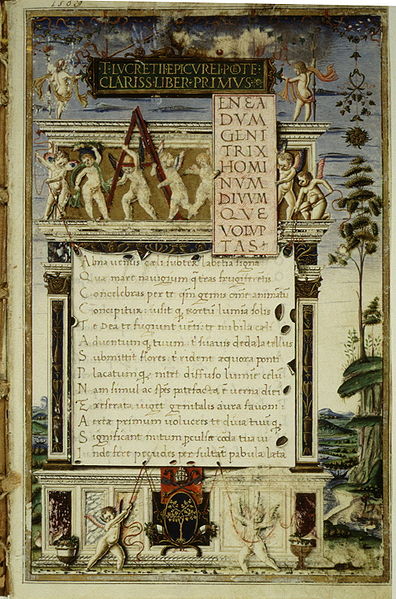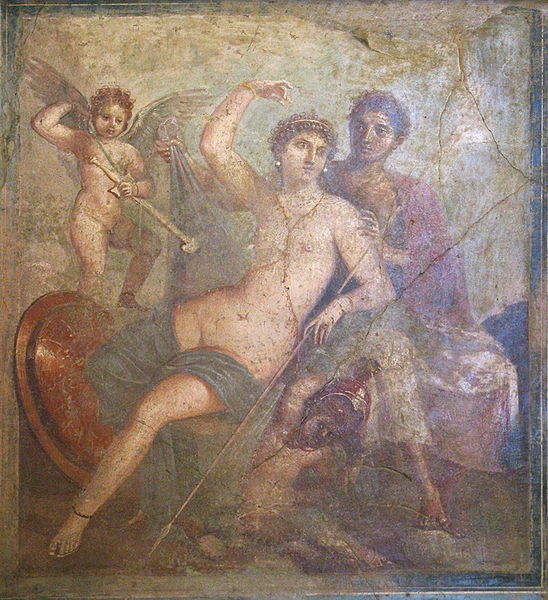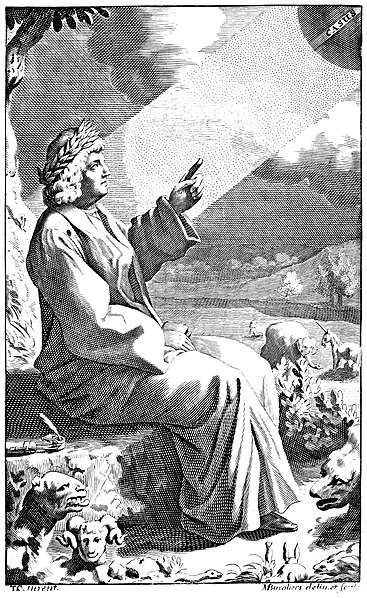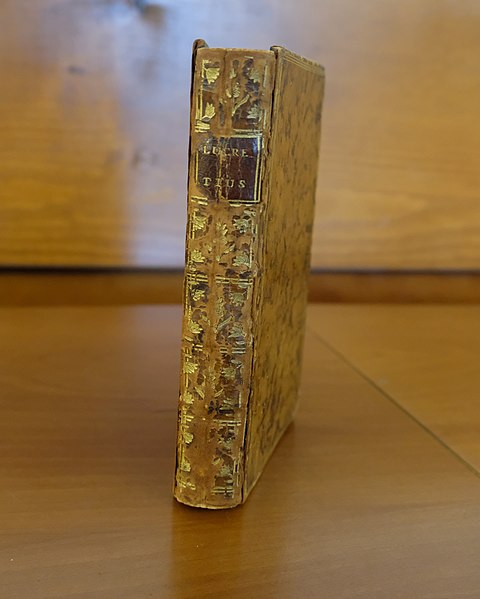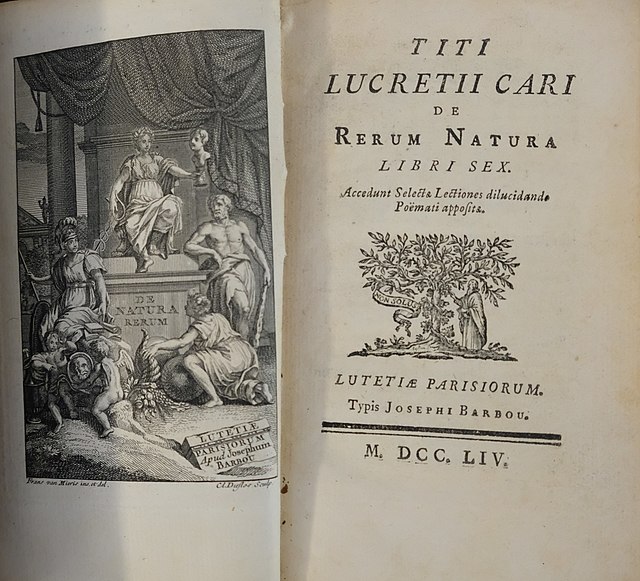De rerum natura is a first-century BC didactic poem by the Roman poet and philosopher Lucretius with the goal of explaining Epicurean philosophy to a Roman audience. The poem, written in some 7,400 dactylic hexameters, is divided into six untitled books, and explores Epicurean physics through poetic language and metaphors. Namely, Lucretius explores the principles of atomism; the nature of the mind and soul; explanations of sensation and thought; the development of the world and its phenomena; and explains a variety of celestial and terrestrial phenomena. The universe described in the poem operates according to these physical principles, guided by fortuna ("chance"), and not the divine intervention of the traditional Roman deities.
Opening of Pope Sixtus IV's 1483 manuscript of De rerum natura, scribed by Girolamo di Matteo de Tauris
Lucretius opens his poem by addressing Venus (center), urging her to pacify her lover, Mars (right). Given Lucretius's relatively secular philosophy and his eschewing of superstition, his invocation of Venus has caused much debate among scholars.
Lucretius pointing to the casus, the downward movement of the atoms. From the frontispiece to Of the Nature of Things, 1682.
St. Jerome contended in his Chronicon that Cicero amended and edited De rerum natura. This assertion has been hotly debated, with most scholars thinking it was a mistake on Jerome's part.
Titus Lucretius Carus was a Roman poet and philosopher. His only known work is the philosophical poem De rerum natura, a didactic work about the tenets and philosophy of Epicureanism, which usually is translated into English as On the Nature of Things—and somewhat less often as On the Nature of the Universe.
Very little is known about Lucretius's life; the only certainty is that he was either a friend or client of Gaius Memmius, to whom the poem was addressed and dedicated. De rerum natura was a considerable influence on the Augustan poets, particularly Virgil and Horace. The work was almost lost during the Middle Ages, but was rediscovered in 1417 in a monastery in Germany by Poggio Bracciolini and it played an important role both in the development of atomism and the efforts of various figures of the Enlightenment era to construct a new Christian humanism.
Lucretius pointing to the casus, the downward movement of the atoms. From the frontispiece to Of the Nature of Things, 1682.
Start of late 15th-century illuminated manuscript of De rerum natura
1754 copy of De rerum natura
Frontispiece of a 1754 copy of De rerum natura

